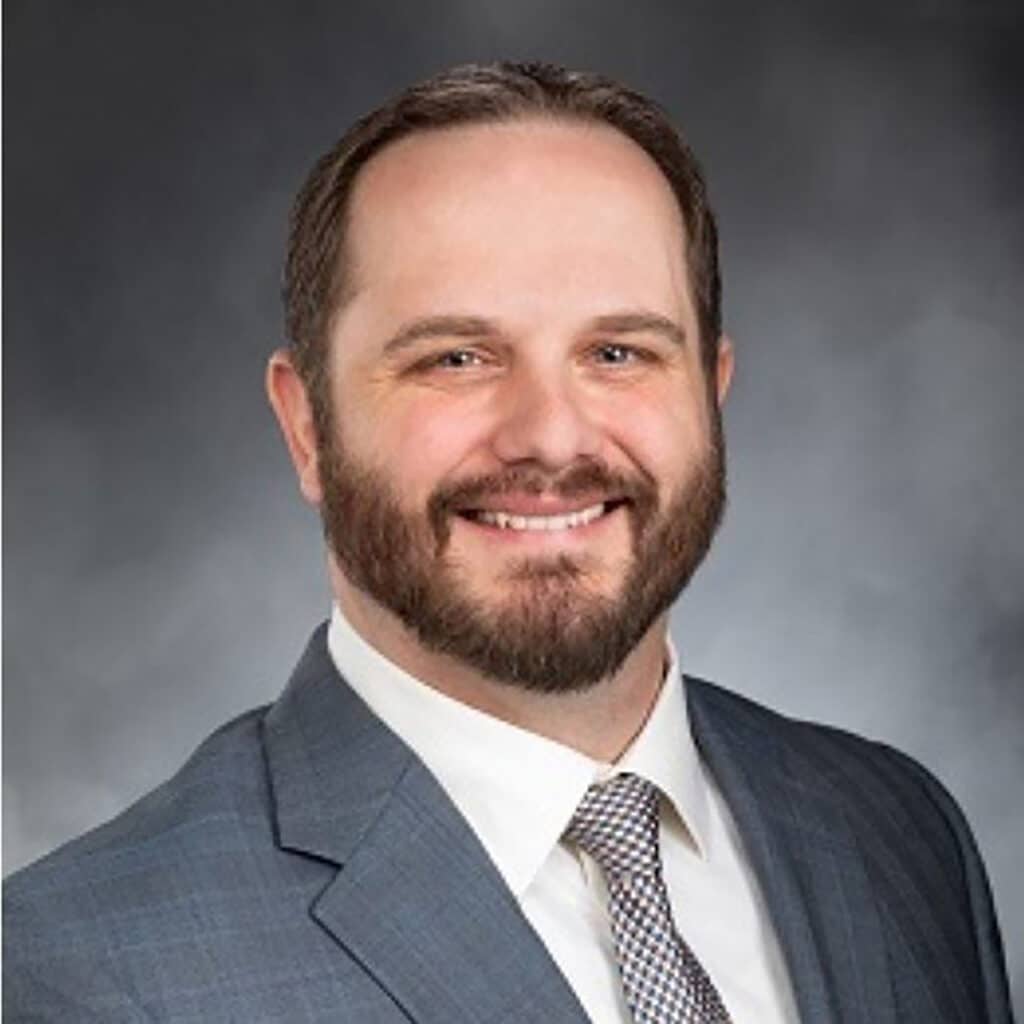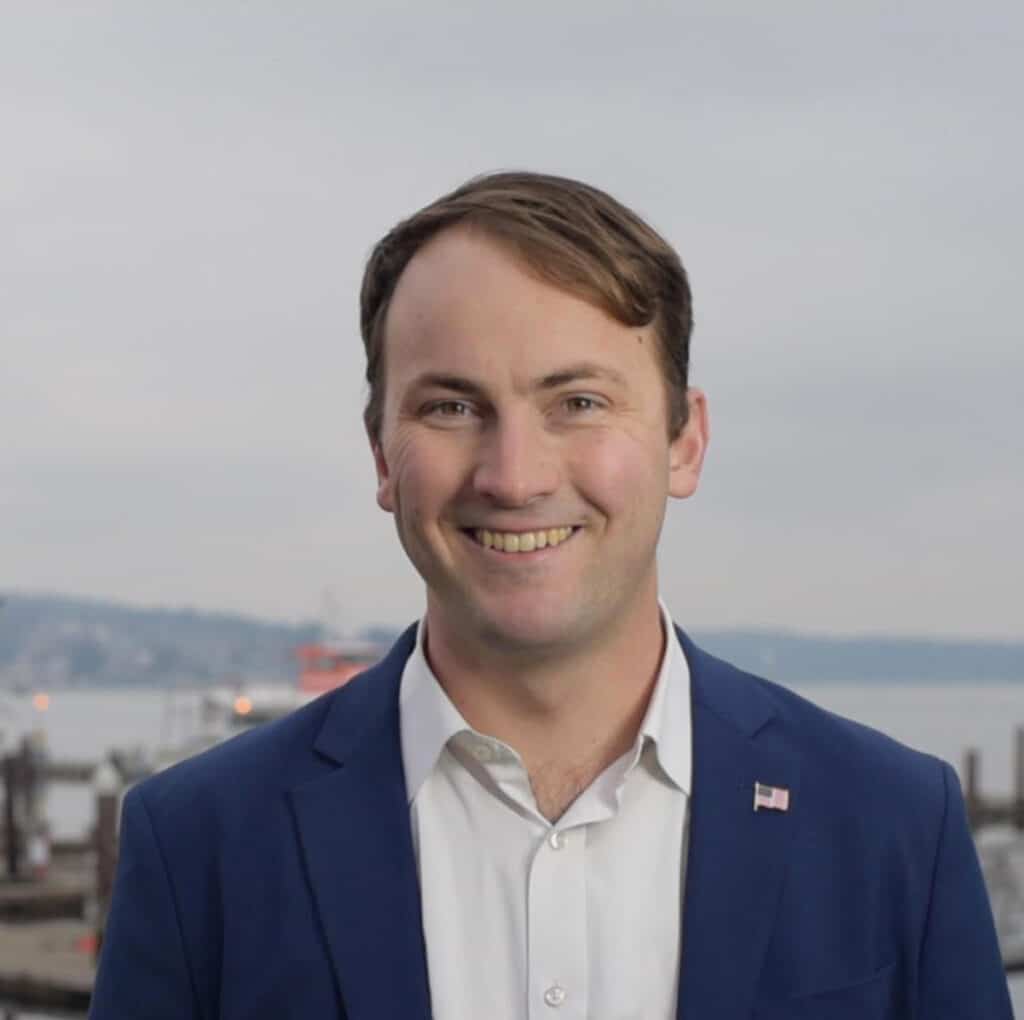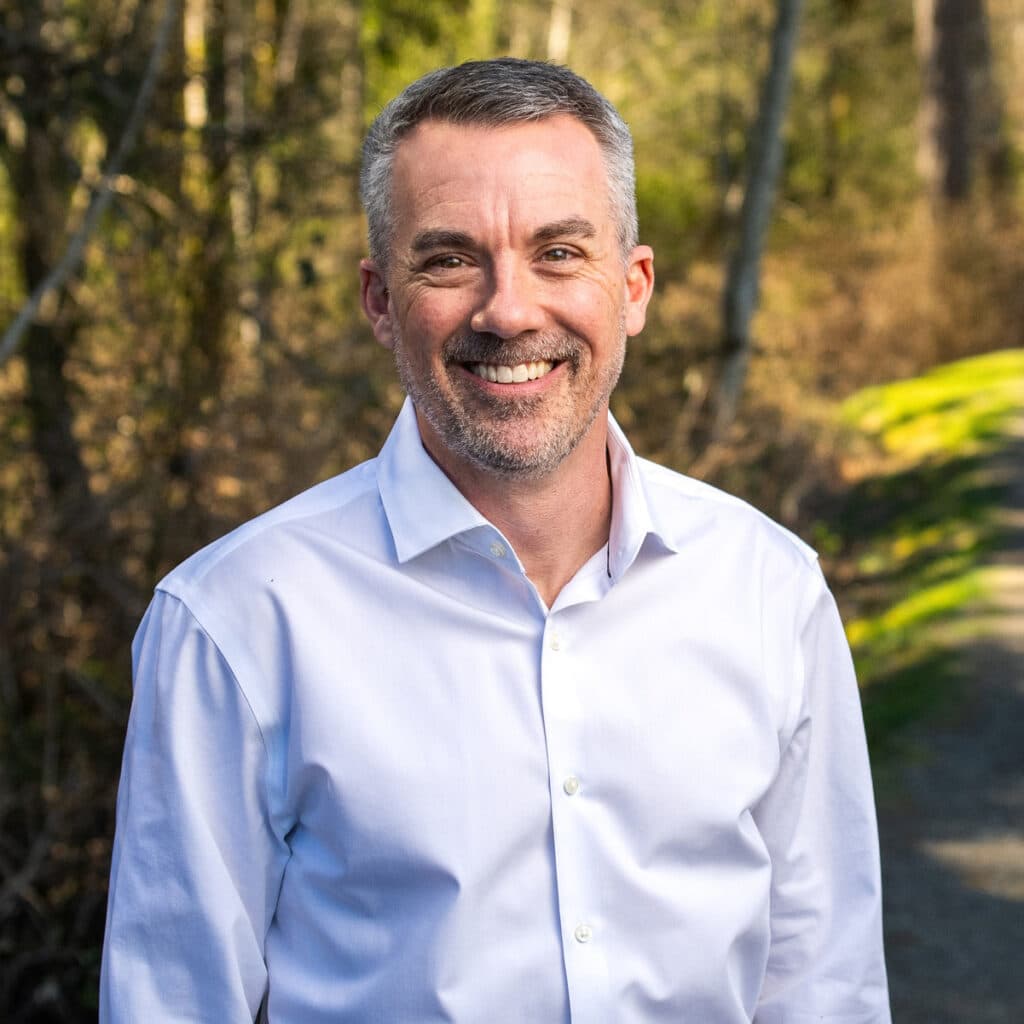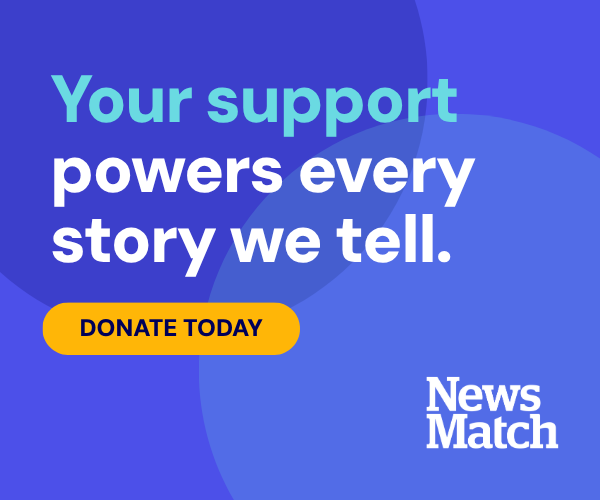Community Government
On the Issues | 26th District, Position 1 state representative candidates
Gig Harbor Now asked 26th Legislative District candidates to write answers to five election-related questions. Their unedited answers appear below.
Jesse Young

What steps should the state take to combat homelessness?
As a youth, I grew up homeless on the Hilltop streets of Tacoma. Having tasted the fear and anxiety, and to be quite candid, the sense of debilitating hopelessness that can come with it, we must put aside political differences and focus on vision, not division.
We must also correctly identify the main components of the problem.
1) Inflation/cost of living: This is obvious, and I will address this through strategic tax reduction.
2) Job availability: We need more vocational and tech-based career opportunities that pay high-wages. I will leverage my private sector experience in the areas of IT, finance, and engineering to get this done.
3) Drugs & Crime: We must again criminalize hard drug possession and move away from government sponsored “safe” injection sites. This only perpetuates the problem and locks the homeless into a cycle of despair.
4) Housing: We must immediately remove the moratorium prohibiting rural housing growth. We need more affordable housing that people can buy; not corporation-favored, high-rent dwellings in urban areas.
5) Performance: We must demand that those agencies and non-government-organizes (NGOs) UNDER-delivering or FAILING to provide the value they promised, must be held to account and the resources quickly moved into performing programs.
How can the state of Washington increase access to treatment services for people battling addiction or mental health crises?
As a community, we must answer the following question: Do we believe that people battling addiction and/or mental health crises can be healed?
As a father and one who’s worked in the Healthcare arena, I know they can be and the evidence bears this out.
However, as a legislator, I can tell you there is a growing push by big corporate and pharmaceutical interests to say that people CANNOT be healed from such battles and that the ONLY course of action is to medicate them for the rest of their lives. Of course, the medications are the ones being manufactured by the big pharmaceutical companies, and the doctors pushing this narrative are partnering with the corporate clinics that will provide the treatments.
To put profit about healing is evil, and they are spending millions of dollars lobbying legislators to pass laws that will mandate that healthcare clinics and doctors that seek to heal, rather perpetually medicate, be shut-off from State funding!
We must stand up to these corporate and pharmaceutical interests, and regardless of how they attack me, I will continue to expose them and support those who seek to heal and restore people battling with addiction.
Do you support Initiative 2117, to repeal the Climate Commitment Act? Do you have other proposals for combatting climate change?
YES and YES.
As I and other legislators predicted, the CCA would massively RAISE INFLATION and specifically spike food and gas prices. Worse yet, it hurts our working-class and low-income families the most.
There is a better way forward — the expansion of the carbon-reducing and EV vehicle build-out program through the Pollution Liability Insurance Agency (PLIA). In 2015, Rep. Peterson and I can together as a bipartisan team to promote a market-driven approach to carbon reduction that did not and would never raise your taxes. It has worked so well that it is being copied across the country as a model for dealing with carbon and the affects it has on the climate.
We need to expand programs like this, rather than lobby-sponsored bills pushed by corporate interests on either side of the climate-change debate. If we do, we can effectively address environmental issues without raising taxes and hurting our work-class families and those on fixed and low incomes.
The court ordered the state to spend billions of dollars to replace culverts with the worst impacts on fish habitat by 2030. The cost is eating into the state’s ability to improve and maintain its transportation system. How can it accomplish both?
We can achieve both with a balance of effective leadership and prudent prioritization.
After the major road and bridge failures and major cost over-runs the past few years, it’s frustrating that Governor Inslee didn’t make wholesale leadership changes within the DOT. We need new leaders with proven track records, who can ensure projects are completed efficiently and effectively.
We also need to reprioritize our financial resources to focus more on road and highway maintenance, which is crucial for our economy and daily lives. This means shifting funds away from less essential social engineering programs and directing them toward critical infrastructure projects.
By doing these two things, we can free up money and resources to address both the court’s mandate and our transportation needs. Improving our management and focusing our budget on what matters most will help us protect fish habitats and keep our roads and highways in good condition.
What would be your single top priority in the 2025 legislative session?
As a dad, my top priority will be to protect our families and their future. That starts with securing the sanctity of parental and women’s rights and ends with making sure our kids have an economic future full of opportunities and hope.
No parent should ever have to fear that their children will be taken and hidden from them by an official who believes they know better how to raise them. That is why I championed a Parents Bill of Rights, and will protect it as your Representative.
I was inspired by my single mom and will also staunchly defend the rights of our wives, daughters, sisters, and mothers. That includes safeguarding the achievements made by women and their right to own what it means to be a woman against the progressive push to redefine it.
High taxes and inflation must be stopped, and lowered, in order to secure a future we can afford. Parents shouldn’t have to choose between putting food on the table or putting gas in the car? Worse yet, how can we hope for future opportunities to be available for our kids if our good paying jobs keep leaving the state because the cost of living is too high?
Protecting our families means securing our economic future as well, and this will be a top priority of mine.
Adison Richards

Adison Richards
What steps should the state take to combat homelessness?
As an attorney serving people in housing crises, I see first-hand how people become homeless. First, we need to address our statewide mental health and substance abuse crises as a state rather than punting the task to cities and counties. Cities and counties have fewer resources, and we have too many agencies that struggle to communicate with other organizations and deliver visible results.
Second, we need to build the shelter and services necessary to get folks out of tents. We cannot leave people on the side of the road; that is not a humane solution. We need to use spaces like Pendleton Place in Bremerton as models and create more shelter options, particularly for vets with pets who would rather be homeless than lose their dog.
Third, build housing where it makes sense to increase supply and lower prices for everyone, while protecting rural areas. King County’s solution to housing is Pierce County, and this is part of the reason why there is more pressure to develop in rural areas and why traffic is getting worse. There is so much development happening in Gig Harbor, but the infrastructure investments to support the building are lacking. We have to do better.
How can the state of Washington increase access to treatment services for people battling addiction or mental health crises?
By simply treating the mental health and substance crisis as the emergency it is. We have a lot of resources going into the bureaucracy and not necessarily into directly getting folks the help that they need. There are models both within our State and outside of it, for example, investing in programs like Pendleton Place in Bremerton, inspired by efforts in Utah, is at least one approach.
Do you support Initiative 2117, to repeal the Climate Commitment Act? Do you have other proposals for combatting climate change?
I support maintaining the Climate Commitment Act (CCA) with changes made in the legislative process. We live in a beautiful place and that’s why we live here, and I know that we all want to reduce pollution. We have many jobs and investments that benefit our district and State tied up in the CCA.
But we should create incentives for transitioning off of fossil fuels through practical common-sense solutions, instead of just passing regulations. I drive a gas-powered car with 285,000 miles on it. An EV is not practical for me right now. We need policy that helps ease the cost of gas right now when so many families are struggling to pay bills, and we live in a district where we have to drive everywhere. We also need to improve the energy grid, build charging stations, and so much more.
I want to get to work on a clean energy jobs package that creates more incentives to build clean energy products in our state. As part of that, we should make it easier to get solar panels installed on homes, on public buildings, and in places like the Purdy Transfer Station where we see an effort underway.
The court ordered the state to spend billions of dollars to replace culverts with the worst impacts on fish habitat by 2030. The cost is eating into the state’s ability to improve and maintain its transportation system. How can it accomplish both?
The United States Supreme Court told our State that we have to replace the culverts on our own without help from the federal government, so that is what we have to do. Preserving salmon and other fish habitat is essential to maintain our way of life as these fish are fundamental for the environment, revered by tribes, and vital for our economy.
There is no doubt that doing so pulls resources from things like our State ferry system, State funding to help with Wollochet, expanding roads in Gig Harbor, funding for the Fox Island Bridge, a solution to Purdy, and so much more. The federal infrastructure bill provides a lot of support and has already helped pay for replacing the expired breakwater in Port Orchard, for example.
But our district did not get projects through the 2015 transportation package and this has set us back considerably. We are likely going to need a new transportation package in the next few years as we need one to be able to do both the culvert removal and invest in infrastructure needs here that have been ignored for too long.
What would be your single top priority in the 2025 legislative session?
I have spent my career to this point working for people struggling to make ends meet and my biggest priority is addressing the rising cost of living. The legislature can and must pass common sense policy to address the cost of housing, health care, childcare, long term care, and work on tax relief, particularly for seniors trying to keep up with property taxes and small businesses. I’m also concerned about large grocery store mergers and the possibility of predatory pricing.
Right now, too many parents are worried about whether they can pay the bills and afford childcare while both parents work, or if they can afford the bills while one parent stays home. Too many seniors on fixed incomes are worried about whether they can keep up with grocery bills, taxes, medical expenses, and still stay in their homes.
Childcare, health care, housing, and long-term care all of a common problem, we do not have enough providers. There is a supply issue and we should first look to regulations, policies, worker compensation, and other factors driving the supply issue before considering putting more money into subsidizing programs.
Jim Henderson

Jim Henderson
What steps should the state take to combat homelessness?
To combat homelessness, I would like at four areas: Accountability, Re-prioritize tax payer money, Supportive housing and Vouchers.
Create Accountability:
• Implement systems to track the effectiveness of homelessness programs. In 2024 Homelessness increase 23% in Pierce County and 4% in Kitsap County. This is an indicator that the current program is ineffective. With each additional dollar of funding, homelessness has increased.
• Conduct regular audits and evaluations to ensure funds are being used efficiently and homelessness is decreasing proportionate to spending.
• Maintain transparency in reporting outcomes and progress to the public.
Re-prioritize Taxpayer Money:
• Allocate funds more strategically to areas with the highest impact.
• Invest in prevention programs to stop homelessness before it starts.
• Redirect funds from less effective programs to those that show better results.
• Increase access and funding for mental illness and substance abuse.
Create Supportive Housing:
• Develop housing that provides not just shelter, but also access to services such as mental health care, substance abuse treatment, and job training.
• Collaborate with non-profits and the private sector to increase the availability of affordable housing.
Increase Housing Options and Vouchers:
• Pass legislation for housing gap vouchers and rental assistance programs, particularly for seniors, veterans, and individuals with disabilities or fixed income.
• Develop more affordable housing units that are accessible to these vulnerable populations.
By taking these steps, the state can create a comprehensive and effective approach to combat homelessness, ensuring that resources are used efficiently and those in need receive the support and housing they require.
How can the state of Washington increase access to treatment services for people battling addiction or mental health crises?
To increase access to treatment services for people battling addiction or mental health crises, the state of Washington could consider the following approaches:
Expand Funding and Resources: Increase state funding for mental health and addiction treatment programs. Allocate funds to expand existing facilities and support the development of new treatment centers, especially in underserved areas. Re-prioritize funding for homelessness by allocating more of the existing funding to mental health and addiction.
Enhance Integration of Services: Improve coordination between mental health and addiction services, ensuring that individuals receive comprehensive care. Integrating services can help address co-occurring disorders more effectively.
Improve Accessibility: Increase access to treatment by expanding telehealth services, making it easier for people to get help remotely. Additionally, offer services in more locations, including rural and underserved communities.
Increase Training and Support for Providers: Provide additional training and support for healthcare providers to better understand and treat mental health and addiction issues. This includes improving knowledge on evidence-based practices and reducing stigma.
Strengthen Prevention and Early Intervention Programs: Invest in prevention programs to reduce the incidence of addiction and mental health crises. Early intervention can help address issues before they become more severe and require more intensive treatment.
Expand Insurance Coverage: Work with insurers to ensure that mental health and addiction treatment services are covered comprehensively. This includes reducing barriers such as high co-pays or limited session limits.
Promote Public Awareness and Education: Increase public awareness about mental health and addiction issues to reduce stigma and encourage individuals to seek help. Public education campaigns can also inform people about available resources and services.
Support Peer Support and Recovery Programs: Invest in programs that provide peer support and recovery coaching. Peer support can be an effective complement to traditional treatment methods and help individuals navigate their recovery journey.
Address Social Determinants of Health: Tackle underlying social factors that contribute to mental health and addiction issues, such as poverty, housing instability, and lack of access to education and employment opportunities.
By adopting these strategies, Washington can work toward improving access to treatment services and better supporting individuals in need.
Do you support Initiative 2117, to repeal the Climate Commitment Act? Do you have other proposals for combatting climate change?
Yes, I support Initiative 2117 to repeal the Climate Commitment Act I believe it is crucial to focus on more immediate and practical measures to combat climate change. For instance, reducing sewage spills is a pressing issue that directly impacts our environment. We must prioritize funding to upgrade our aging infrastructure to prevent these spills and improve overall water quality.
Additionally, we need to shift our focus from a disposable society to one that values sustainability and long-term solutions. This includes promoting practices that reduce waste and encouraging the use of durable and reusable products.
Moreover, we are facing significant challenges with our recycling programs, especially since China no longer accepts our recycling. To address this, we must partner with waste management facilities and manufacturers to create comprehensive education around recycling and simplify the process. By making recycling more accessible and understandable, we can ensure that more materials are properly recycled and reduce our overall environmental impact.
The court ordered the state to spend billions of dollars to replace culverts with the worst impacts on fish habitat by 2030. The cost is eating into the state’s ability to improve and maintain its transportation system. How can it accomplish both?
The court-ordered mandate for the state to spend billions of dollars on replacing culverts to mitigate their impacts on fish habitats by 2030 poses a significant financial challenge, particularly in terms of maintaining and improving the state’s transportation system. Here is how the state may be able to accomplish both objectives:
Alternative Funding Sources: The state should explore alternative funding sources for the culvert replacement project, such as federal grants, environmental funds, or public-private partnerships. Relying solely on the transportation budget strains the resources needed for other critical infrastructure improvements.
WFDW Coordination: The Washington Department of Fish and Wildlife (WFDW) should closely coordinate with the Department of Transportation to ensure that the projects are efficiently integrated. This collaboration can help in planning and executing projects in a manner that minimizes costs and maximizes environmental and infrastructural benefits.
Innovative Engineering Solutions: Employing innovative engineering solutions and sustainable practices can reduce the overall cost of culvert replacements. Techniques such as natural channel design or modular culvert systems might offer cost-effective and environmentally friendly alternatives.
Public Engagement and Support: Engaging the public and local communities in understanding the importance of these projects can garner support for funding initiatives. Public awareness campaigns can highlight the dual benefits of improving fish habitats and ensuring safe, reliable transportation infrastructure.
In summary, while the court’s mandate is a significant financial undertaking, it is crucial to ensure that funding for culvert replacements does not come at the expense of transportation system improvements. By exploring alternative funding sources, enhancing inter-departmental coordination, and adopting a phased and innovative approach, the state can work towards accomplishing both objectives.
What would be your single top priority in the 2025 legislative session?
My top priority for the 2025 legislative session is to enhance accountability in our legislative process. It’s essential that every bill we pass has clear, measurable outcomes to ensure it achieves its intended goals. If a bill isn’t delivering the expected results, we need to either modify it or stop it altogether. By implementing stringent accountability measures, we can ensure that our legislative efforts are effective and beneficial for our community.

